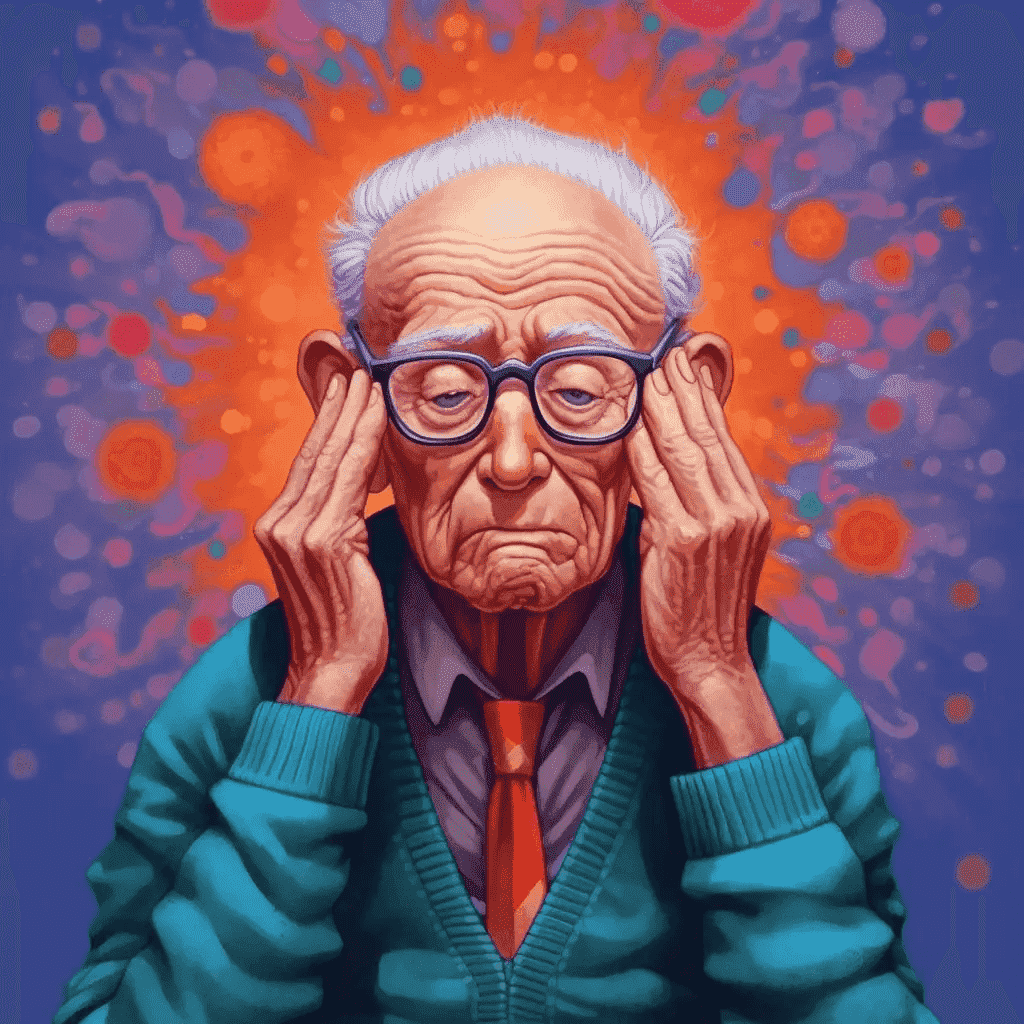Brain Power Boost: The Magic of BDNF
Brain power is the catalyst for our intellectual prowess. Harnessing this incredible potential requires nurturing our minds through learning, curiosity, and cognitive challenges.
As we age, we all experience cognitive decline, which is the gradual loss of cognitive functions, including thinking, reasoning, memory, attention, and language abilities. It is a natural process that can occur as people age, but the rate and extent of decline can vary significantly among individuals. While some cognitive decline is a normal part of aging, excessive or rapid decline can be a sign of more serious conditions such as dementia or Alzheimer’s disease.
Factors Contributing to cognitive decline:
- Age: Normal aging can lead to changes in cognitive functions, but it doesn’t necessarily lead to severe cognitive impairments.
- Neurodegenerative diseases: Conditions like Alzheimer’s disease, Parkinson’s disease, and other types of dementia are characterized by a progressive decline in cognitive functions.
- Vascular factors: Conditions like stroke or chronic high blood pressure can affect blood flow to the brain and contribute to cognitive decline.
- Infections and diseases: Some infections or diseases like HIV or Lyme disease can affect cognitive functions.
- Medications and treatments: Some medications or treatments, especially when taken in combination, can affect cognition.
- Traumatic brain injuries: Concussions and other forms of brain injury can lead to both short-term and long-term cognitive impairments.
- Mental health conditions: Depression, anxiety, and chronic stress can impact cognitive function.
- Lifestyle factors: Excessive alcohol consumption, drug abuse, poor diet, lack of physical activity, and insufficient sleep can contribute to cognitive decline.
It’s essential to note that while everyone will experience some cognitive decline as they age, not everyone will develop a severe cognitive impairment or dementia.
While some degree of cognitive decline is inevitable with aging, to mitigate its effects, our best ally is BDNF (Brain-Derived Neurotrophic Factor). So, how can it help us? BDNF is a protein that plays a vital role in brain power, function, and neuroplasticity.
What is BDNF? BDNF is a type of neurotrophin, which is a family of proteins that promote the survival, development, and function of neurons. It is especially important for the health and maintenance of neurons in the central nervous system.
Release in the Brain: BDNF is produced and released in response to various stimuli. Its expression can be found in several brain regions, most notably the hippocampus, cortex, and basal forebrain, areas vital for learning, memory, and higher-order thinking.
Triggers: Multiple factors can influence BDNF release:
- Exercise: Physical activity has been shown to increase BDNF levels in the brain. This is one reason exercise is thought to benefit cognitive function and possibly reduce the risk of neurodegenerative diseases.
- Learning and Cognitive Stimulation: Engaging in learning activities or mentally stimulating tasks can boost BDNF levels.
- Diet: Certain dietary components, like omega-3 fatty acids, might enhance BDNF production.
- Social Interactions: Positive social interactions and experiences can elevate BDNF.
- Stress: Chronic stress can reduce BDNF levels, which might be linked to depression and other mood disorders. On the other hand, brief acute stress might increase BDNF levels.
- Antidepressants: Some studies suggest that certain antidepressants increase BDNF levels, which might contribute to their therapeutic effects.
Functions: BDNF has various roles in the brain:
- Neuroprotection: It supports the survival of existing neurons.
- Neurogenesis: BDNF promotes the growth and differentiation of new neurons and synapses, especially in the hippocampus.
- Synaptic Plasticity: It enhances the ability of synapses to strengthen or weaken over time, which is crucial for learning and memory.
- Memory and Learning: BDNF has a vital role in the processes of memory consolidation and storage.
Lower levels of BDNF are associated with various neurological and psychiatric conditions, such as depression, schizophrenia, and Alzheimer’s disease. Thus, strategies to boost BDNF might hold therapeutic potential for these disorders.
So, diving into all this brain talk, it’s super clear that BDNF is kind of like a secret weapon against the brain’s natural aging process. It’s like the brain’s personal trainer, helping it stay fit, sharp and increases brain power. The cool part? We’ve got a say in how much of this BDNF magic we get to increase brain power. Whether it’s by hitting the gym, challenging our brain with puzzles, hanging out with friends, or eating the right foods, we can give our brains a little BDNF boost. Aging’s gonna happen, but with a little effort and understanding of this BDNF stuff, we can give our brains the best shot at aging gracefully. Let’s keep those neurons dancing! 🧠💃🕺

